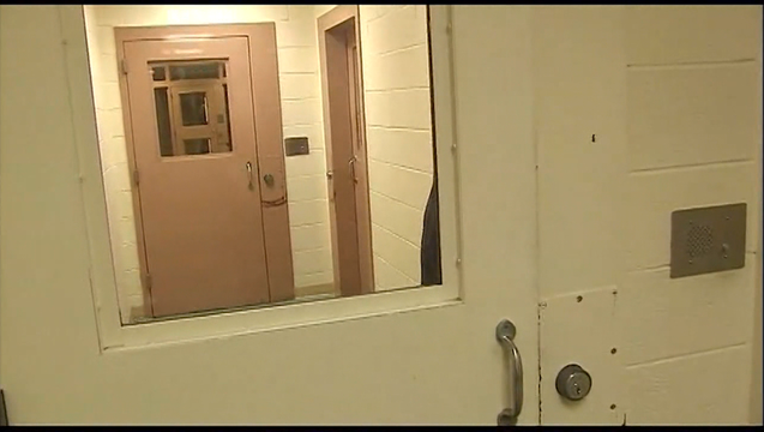Study: New Mexico, Georgia had highest jail rates in US

ALBUQUERQUE, N.M. (AP) - New Mexico and Georgia - two states with some of the nation's largest percentages of minority residents in the United States - had the nation's highest rates of inmates in county jails, according to a report made public Wednesday by a non-partisan criminal justice reform group.
The study by the Massachusetts-based Prison Policy Initiative that lobbies for reducing U.S. jail and prison populations showed that New Mexico had a jail incarceration rate of 340.8 per 100,000 residents in 2013 - the latest year of federal data tracking all local jail populations. Georgia had the second highest rate that year with 317.3 per 100,000 residents.
County officials who oversee jails in New Mexico and Georgia say they have since enacted reforms that have significantly decreased the number of people held in those jails.
The study found that pre-trail detentions tripled jail population growth nationwide over since 1978, said Joshua Aiken, the report's author. He blamed most of the increase on inmates too poor to post bail after their arrests on minor infractions.
New Mexico has the largest percentage of Hispanic residents in the United States at 48 percent. Around 31 percent of Georgia residents are black - one of the highest percentages in the country.
New Mexico state Rep. Antonio "Moe" Maestas, an Albuquerque Democrat and outspoken advocate for criminal justice reform, was not surprised that New Mexico and Georgia had the highest rates of inmates in county jails. Both states struggle with poverty and have minority populations that are disproportionately stopped by law enforcement agencies, he said.
"But it's not just the arrests and the jails. It's the whole criminal justice system, including the courts," Maestas said. "The inefficiency is mindboggling."
For example, Maestas, a defense attorney, said he often comes across cases of poor inmates being held on small crimes for four to six months after a trial date has been delayed.
Aiken said people who are incarcerated for lengthy periods before they face trial run a high risk going to prison later for more serious crimes.
"Jails are an entry point to the criminal justice system because being held in jail for a something small can have big effects later in life," he said.
The study's results were drawn from statistics in the federal Census of Jails compiled by the U.S. Bureau of Justice Statistics. Excluded from the study were counts of people held in local jails for state and federal authorities.
Grace Philips, general counsel for the New Mexico Association of Counties, said the report is no longer reflective of the state's jail populations because many counties have reported a reduction in inmates since 2017.
New Mexico's largest county, which includes Albuquerque, has instituted reforms to reduce its jail population that helped decrease it 48 percent from 2013 to 2017, according to data from Bernalillo County's Metropolitan Detention Center.
The changes include efforts to allow people charged with crimes to enter pleas earlier than they did in the past and earlier resolution of hearings for suspects facing detention. In some cases, judges are allowed to seek hearings for suspects on charges to avoid having them face indictments by grand juries, which can lead to faster plea agreements.
Schuyler Harding, a spokesman for the Association County Commissioners of Georgia, said county jail inmate populations in Georgia also have dropped since 2013 as a result of the state's criminal justice reforms.
Georgia Bureau of Investigation reports that the jail population fell 3 percent from January 2013 to January 2017.
In 2015, American Civil Liberties Union of Georgia filed a federal lawsuit against DeKalb County on behalf of a black teenager who was jailed because he could not afford to pay court fines and probation company fees stemming from a traffic ticket.
DeKalb County agreed in a settlement to changes for people who could not afford to pay fine and fee payments, including training for court staff and instructions for judges aimed at prompting them to avoid sending people to jail who owe court fines but cannot pay.
The Prison Policy Initiative recommended that states turn misdemeanor charges that do not threaten public safety into "non-jailable" infractions and to offer treatment programs instead of jail for low-level offenders struggling with drug addiction or mental illness.
___
Follow Russell Contreras on Twitter at http://twitter.com/russcontreras

